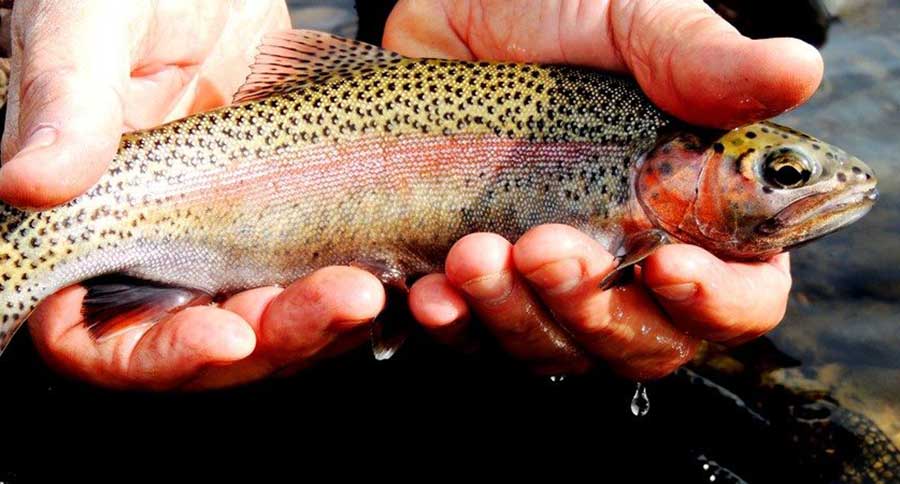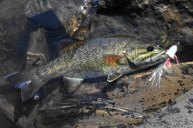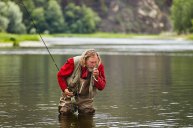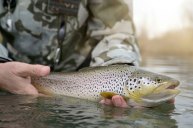To see and touch is everything, but listening is good, too.
Ever wonder how to catch more fish? Who are you kidding? Of course you do. It's a question we all ask especially when we aren't catching anything. Fish are slippery creatures in more ways than are obvious. Fish feel, smell, taste and see more than we give them credit for. What can we do to catch more fish? The answer is pretty simple. Its all in the senses.
The sense of sight
There is so much to see out there on the water. From the bugs, color of the water, appearance of the sky, moon and the weather it all has to be put on the table. Look to see if fish are jumping and what they might be eating. Subtle things can determine if a fish is willing to bite or not. It is important to pay attention. Why do guides, outfitters and professionals catch a lot of fish? They go when "all the stars align."
Simply put, they don't waste their time unless the conditions are prime.

Watch carefully to see what the fish are eating.
Can you feel it?
A strike can be a small tap or a massive tug. A good angler needs to know how his or her gear performs. What do you mean by this might you ask? Well, if you are fishing a swift current and not far from the bottom, you need to know what your rod feels like when getting bit. You need to know what it feels like when it snags or gets caught on the rocks. Good fishermen need to know when the drag is too tight or the reel needs oiled. Your rod speaks to you, and you need to learn its language. Once you do, more fish are headed to your cooler.
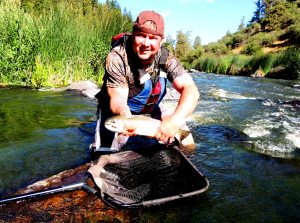
The author felt this Upper Klamath fish bite so very lightly and set the hook just in time.
Listen Up
Do you hear that? That splash of water, the drip of rain, that clap of thunder. Wait, did you hear that noise? That right there is the sound of your reel going off with a fish at the end of your line. Jumping fish usually equate to hungry fish. So pay attention to that sound. Most importantly, listen to professionals, guides and folks that are on the water regularly. They will often times give you some of the best advice available.
https://rumble.com/embed/u7gve.v3tsgf/
NEXT: CHECK OUT THIS NEAT INFOGRAPHIC ABOUT REMINGTON'S HISTORIC SNIPER RIFLES
